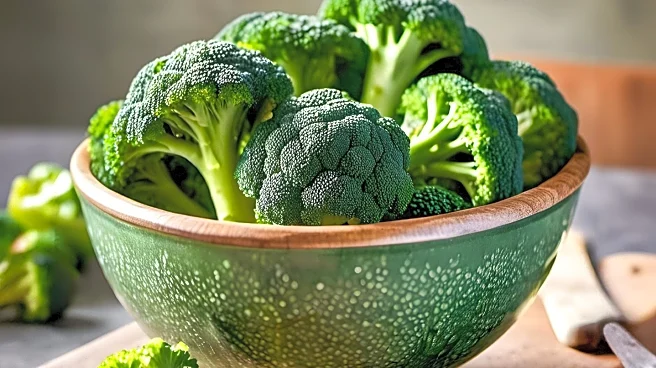What's Happening?
A recent study published in BMC Gastroenterology has found that daily consumption of cruciferous vegetables, such as broccoli and cauliflower, can lower the risk of colon cancer by 20%. The meta-analysis reviewed data from 17 studies involving 97,595 participants, comparing colon cancer incidence among those with varying levels of vegetable intake. Experts highlight the role of glucosinolates, sulfur-containing chemicals in these vegetables, which break down into bioactive products that help detoxify carcinogens and reduce inflammation.
Why It's Important?
Colon cancer is a major health concern in the United States, being the fourth most common cancer and a leading cause of cancer-related deaths. The study underscores the importance of diet in cancer prevention, suggesting that increasing intake of cruciferous vegetables could be a simple yet effective strategy to reduce cancer risk. This finding may influence dietary guidelines and public health initiatives aimed at promoting vegetable consumption as a preventive measure against cancer.
What's Next?
The study's findings may lead to increased public awareness and educational campaigns encouraging the consumption of cruciferous vegetables. Healthcare providers might incorporate these recommendations into dietary advice for patients, particularly those at higher risk for colon cancer. Further research could explore the specific mechanisms by which these vegetables exert their protective effects, potentially leading to new dietary supplements or treatments.









